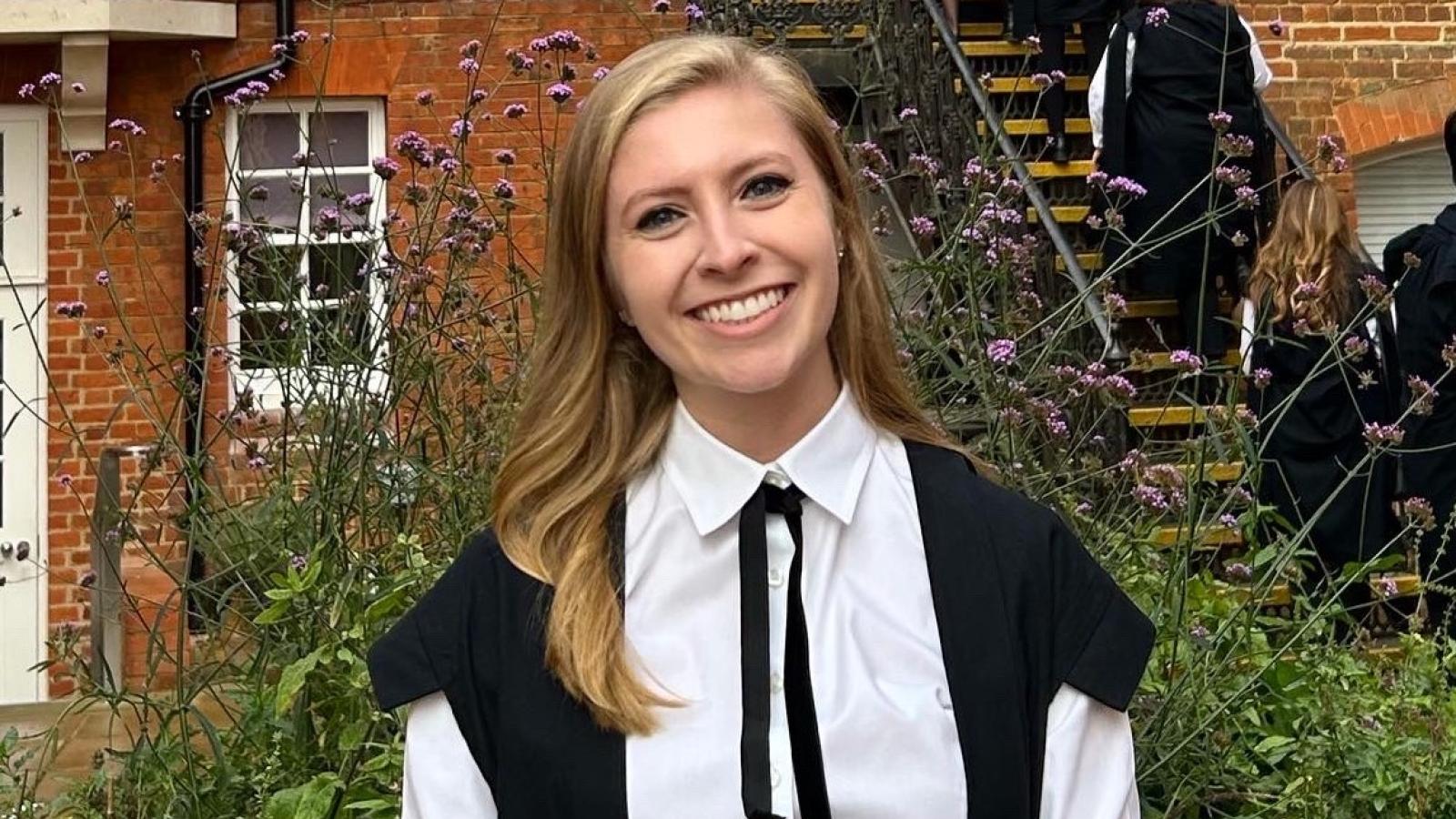I certainly knew - to a degree - what I was getting myself into. As an undergraduate, I studied communication with minors in psychology and advertising. My courses largely focused on intensive writing, strategy, and digital arts. I loved looking at problems from different angles and brainstorming creative solutions, which translated well into a digital advertising career, but I was acutely aware of gaps in my business knowledge. Rather than a complete skillset to rely on, I would learn calculations or concepts as they became important in my roles. Consequently, a primary motivator to join Oxford’s MBA program was to flip this series of events upside down. I knew that regardless of where my career took me, I would accelerate faster if I had a foundational understanding of key business practices, and beyond this, I was genuinely curious how they influence one another.
I remember sitting in the lecture theatre during launch week when a pie chart breaking down our cohort by industry was flashed on screen. I squinted, looking for the sliver I belonged to: media, 2%. I let out a laugh, driven equally by humour and fear. Regardless of background, it is daunting to come into a program where you know your fellow classmates have already achieved great milestones, but arguably more so when your career has been notably atypical for an MBA pathway.
The first half of Michaelmas term featured three core courses: accounting, organizational behaviour, and technology and operations management. Expectedly, accounting felt the most foreign, but I was surprised that half of the courses, which focused on managerial accounting, were geared towards conceptual frameworks. For example, how can we adjust accounting practices to consider a company’s carbon footprint? Or social impact contribution? It was these classes that helped me root quantitative learnings in meaning and tie in critical thinking for long-lasting retention.
As a previous Bachelor of Arts student, I have both stumbled and sailed while navigating these first few months in the MBA program. For those of you considering an MBA, but are hesitant because of your arts-focused education, my biggest pieces of advice are:
1 - Don’t be scared to ask for help
Yes, a lot of your classmates will come from industries such as finance, so learn from them. I have been overwhelmed by my peers’ kindness and the outpouring of support when I’ve mentioned confusion on a subject even in passing. However, before even entering the MBA, I would recommend taking advantage of resources like Wall Street Prep to boost confidence on subjects you may be unfamiliar with.
2 - Your voice is valuable
Just because you don’t have professional experience in a subject, doesn’t mean you should stay silent. The beauty of a diverse cohort - in all forms - means that class discussions will be that much more dynamic and productive.
3 - You belong
The Oxford MBA is meant to challenge you, but that does not mean that you should ever question your place in it. A bachelor of arts background has its own unique set of strengths that will prove beneficial in your studies; in fact, a Master of Business Administration curriculum is structured to be applicable to all industries. So regardless of whether you enter the program to explore, accelerate, or transition your career, be confident in what you bring to the table and humble in acknowledging there is still so much to learn.





